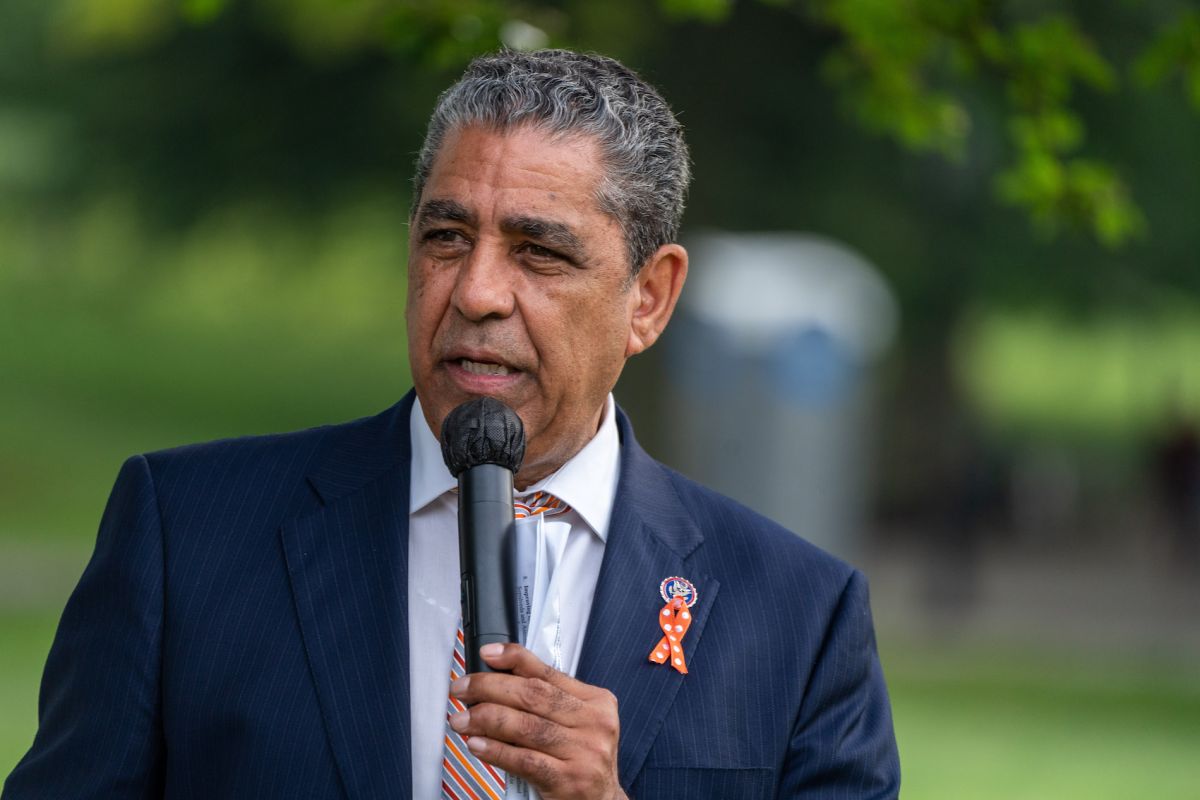Rep. Adriano Espaillat (New York) confirmed that the Registration Law project that was presented in the House of Representatives would benefit various types of immigrants, not just the undocumented.
To an express question, the Democrat answered positively that non-citizens with work visas or other immigration protections who have been in the United States for more than seven years could apply for a ‘green card’ if the reform manages to advance in Congress.
“Yes, they could also apply, correct, it does not only apply to undocumented immigrants”, said the representative for the District 10 from New York.
The questioning in the podcast ‘El Diario Sin Limites’ occurred due to the fact that several immigrants who are not undocumented expressed concern about their situation on social networks, due to delays in the office of Citizenship and Immigration Services (USCIS) regarding their applications for Legal Permanent Residence.
“I agree that they should not the initiatives should not be for the undocumented, but for people who wait a long time [para una ‘green card’]”, he acknowledged.
Espaillat trusted that the project created by Representative Zoe Lofgren (California) and supported by him and several other Democrats will achieve bipartisan support, noting that the reform focuses on Citizenship Law of 1929, which has been modified with the support of congressmen from both parties, although the atmosphere in Washington is different.
“The environment here in Washington has become more hostile and more partisanI think there is a very important aspect and it is the economy “, I consider. “We understand that the economy needs job injection and these people are here… and if it is true that we are going to avoid a recession or lift the economy, I think it is difficult to think that this is going to be achieved without the work of immigrants.”
The reform project is simple, as the congressmen themselves have described, since it would establish that an undocumented immigrant who proves seven years living in the US and their contributions to the country In addition to not having a criminal record, you could apply for Permanent Legal Residence, the first step to obtain citizenship.
An important element is that another reform would not be necessary, since the proposed modification will allow the Registration Law to remain in force annually. In other words, considering the law begins to be applied in 2023, an immigrant who in 2024 add up your seven years of stay in the US you could stick to the norm.
The Democrat from the Dominican Republic has spoken openly about the opportunity that it meant for himself to obtain a ‘green card’ and then citizenship, which is why he defends this cause.
He pointed out that among the Republicans there are those who have an important connection with the agricultural and business sector, which could give a boost to the proposed reform.
“I think it is a good initiative that probably has a better opportunity than others, than a sharp, very detailed immigration reform, but rather this is a very technical change”, he recalled.
The project is also supported by Norma Torres (California), Grace Meng (New York), Lou Correa (California) and Jesús “Chuy” García (Ilinois).
Espaillat trusts that the leader of the Senate, Chuck Schumer (New York), will support the project, but he anticipated that the sponsors could be Senators Dick Durbin (Illinois) or Bob Menéndez (New Jersey), who have not expressed themselves in this regard.
